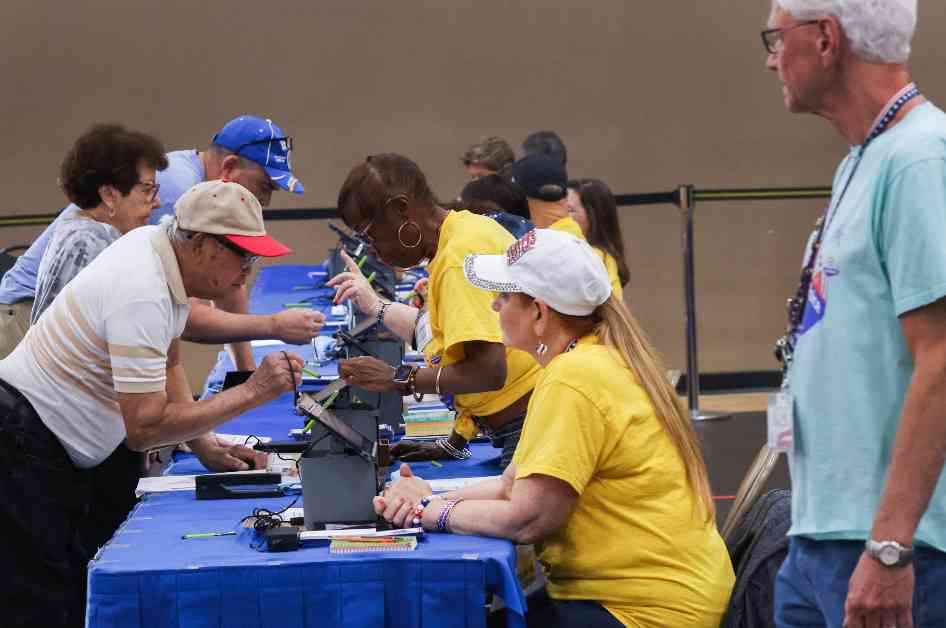The Nevada Secretary of State’s Office recently announced that a proposed ballot measure, which would mandate voters to show identification before casting their votes, has garnered enough valid signatures to be included on the November ballot. The initiative received a total of 131,590 valid signatures, surpassing the required threshold of 25,591 signatures from each congressional district in the state. This milestone was celebrated by David Gibbs, the chairman of the Repair The Vote PAC, which supports the initiative.
If passed, the ballot question aims to amend Nevada’s Constitution by necessitating in-person voters to present valid photo identification and mail voters to provide a personally identifiable number, such as a portion of their driver’s license or Social Security number, in addition to their signature. Currently, Nevada does not mandate voters to show any form of identification, only requiring a signature that matches the one on file.
Critics of the proposal argue that the voter ID requirements resemble an unconstitutional poll tax, as acquiring identification often involves a monetary cost. Despite facing legal challenges earlier this year, the measure was permitted to proceed by the state Supreme Court in May, without addressing all legal arguments in the pre-election phase.
Governor Joe Lombardo, a Republican, has voiced his support for the concept of voter ID. Better Nevada, a PAC aligned with Lombardo, disclosed contributing over $1.5 million in the previous quarter to assist an affiliated PAC in collecting signatures for the initiative. Since amending the state Constitution necessitates two affirmative votes, the measure would only appear on the 2026 ballot if it secures approval this year.
Adding to the current situation, voter ID laws have been a contentious issue across the United States, with proponents arguing that it helps prevent voter fraud and ensures the integrity of elections. On the other hand, opponents believe that such requirements disenfranchise certain groups of voters, particularly minorities and low-income individuals who may face challenges in obtaining valid identification.
In light of the upcoming election, the debate over voter ID laws in Nevada is likely to intensify, with both sides presenting their arguments on the necessity and implications of such measures. As voters prepare to make their decision in November, the implications of this ballot question extend beyond the state’s borders, reflecting broader discussions on voting rights and access to the electoral process in the country.



